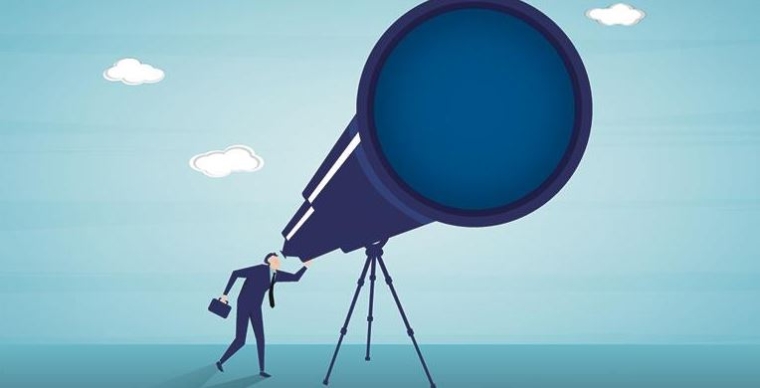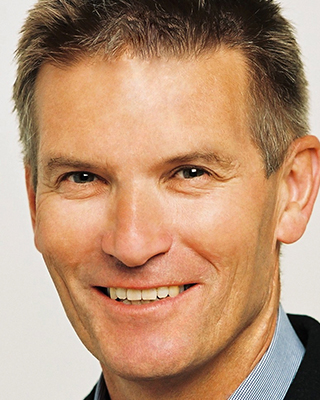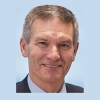
By Martin Hawes

The worlds’ share markets are mostly driven by the US. The US makes up over 50% of the total world share markets by value and, of course, it has by far the biggest economy in the world - roughly 50% bigger than the second biggest economy (China). Where the US goes, so follows most of the rest of the world.
This underpins that old saying: when the US sneezes, the rest of the world catches a cold.
And so, with this in mind, the Summer Investment Committee discusses what is happening in the US more than any other place. More, even than New Zealand, because New Zealand’s economic and financial health is driven by what happens in New York along with what happens in Wellington.
The volatility that share markets have experienced over the last couple of months has largely come out of the US. Essentially, markets have been concerned that the Fed (the US’s Central Bank) was going to raise interest rates further and faster than share investors expected.
Investors didn’t like this and expressed their displeasure by selling shares. The resultant market fall (generally about 10%) was enough for the Fed to have another look at its interest rate plans and, in response, started to use language that was much milder when it talked about what it might do in the future. In the jargon, the Fed started to look much more like a dove than a hawk.
We think that interest rates in the US will still rise, but at slower pace than had been expected. Interest rates are not at their peak, but they are likely to take a path that is lower and slower.
This is good for shares. Lower interest rates mean lower costs for companies which have debt. More importantly, perhaps, lower interest rates make the returns from shares look good – investors will buy shares because the returns that they will get from bank deposits and fixed interest investments look pale by comparison.
We think the fall in the markets over recent weeks makes share prices attractive. Share valuations are not at bargain basement prices but with low interest rates along with profit growth, US shares are fairly priced (European shares actually look quite cheap).
Most of the key economic indicators that we watch look good: interest rates will likely increase (but only slowly), consumer confidence is high and retail sales look buoyant. The outlook for shares in the US continues to look good – and that should drive most of the rest of the world.
With this assessment, the Summer Investment Committee recommended to keep the investment mix unchanged. Members may remember that we are already over-weight to international equities and so there was no appetite amongst committee members to recommend taking on more growth assets.
The heavy weighting to shares that we have had over the past few weeks has meant poor returns for the Summer Investment Selection. The falls in global share markets was one component of this but we have also had a stronger New Zealand dollar which exacerbated our negative returns. We have now instituted a small amount of currency hedging which will assist to mitigate against further falls in the US currency.
While negative returns are unpleasant, we firmly expect our decision to ride out the recent falls will prove to be the right one. The US remains the biggest factor in both the global economy and share markets worldwide and with its economy doing well, the US share market will also do well.
Volatility or not, our position remains the same and we look forward to positive outcomes in the new year.
Martin Hawes is the Chair of the Summer KiwiSaver Investment Committee. The Summer KiwiSaver Scheme is managed by Forsyth Barr. He is an Authorised Financial Adviser. More deatils here: www.martinhawes.com. This article is general in nature and not personalised advice.
3 Comments
So Martin believes that the outlook for share markets next year is positive,based entirely on slower than predicted interest rate rises in the US.
His analysis makes no mention of trends in the yield curve or threats to global trade and personally,I expect next year to be difficult. I continue to gradually increase my cash holdings and would like to see our market fall to under 8000. The effect of this on dividends will be minimal and that is my focus.
I'd be interested to see what Martin's take is on Listed Property for 2019. I read a few of his books and know he's a big fan of this sector.
Keeping the KS (450k) on growth but have wound back ANZ and Simplicity to conservative. Kept a lot on fixed interest but a chunk of that is earmarked to be spent in next year or two.
My prediction is it will be challenging overall for the next few years. But am well aware it's only a prediction.

We welcome your comments below. If you are not already registered, please register to comment
Remember we welcome robust, respectful and insightful debate. We don't welcome abusive or defamatory comments and will de-register those repeatedly making such comments. Our current comment policy is here.